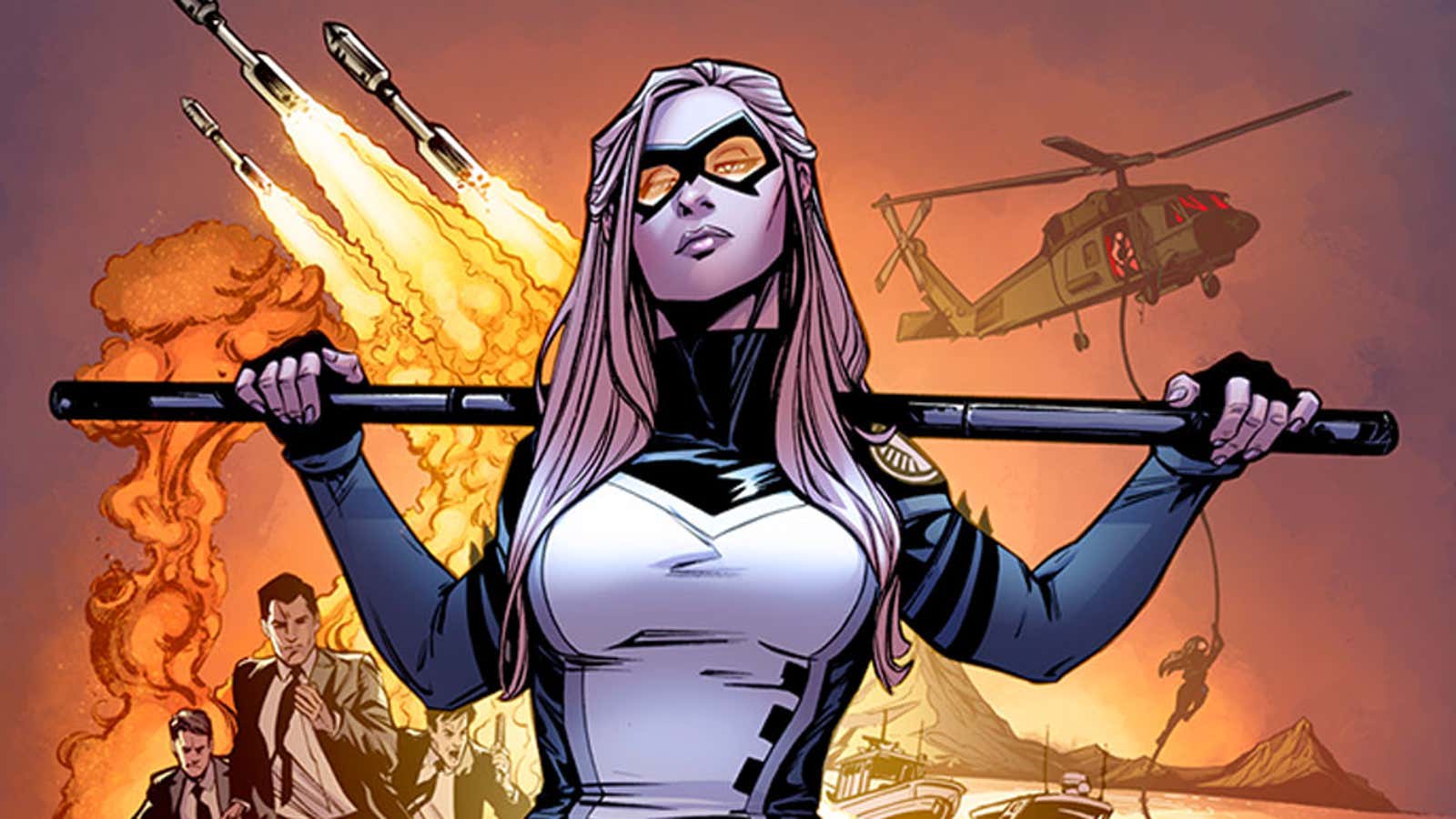It didn’t take rape or death threats for Chelsea Cain to deactivated her account—Twitter being Twitter was enough.
Cain had received love and support on Twitter for penning eight issues of Marvel’s comic book series Mockingbird, which is centered around a strong female protagonist. But she was driven off the platform after she had enough of the trolls. “It’s misogynist and dismissive and obsessive and it thrives off taking down other people,” she wrote in an Oct. 27 blogpost.
“It’s not different than what most comic book writers deal with, especially female ones,” Cain wrote. “The tweets that bothered me were never the ones concerned with content; they were the ones that questioned my right to write comics at all, and were disgusted by the idea of a female hero having her own series.”
Cain said she has blocked eight people in her entire Twitter history—seven of them were on Oct. 19, after Mockingbird was canceled and a slew of tweets celebrating the end of her feminist character poured in.
The anti-feminist trolling came after she posted a tweet on Oct. 17, which has since been deleted: “Please buy Mockingbird #8 this Wed. Send a message to @marvel that there’s room in comics for super hero stories about grown-up women.” The message was accompanied by an alternate cover for the comic, featuring the title character in a shirt that read, “Ask Me About My Feminist Agenda.”
That’s when the real trolling began. By the next morning, her account had been turned upside down:
Overnight, I had lost thousands of followers. (I’d gone to bed with about 8500.) I had gained a thousand new followers. I had been tagged thousands of times. Comments were coming in, fast and furious, every second. I’d never seen anything like it. I saw a few of them – a lot of support, a lot of people yelling at one another – a lot of people mad at me for being too quick on the block button or too critical of comic book readers or being too feminist. A lot of them just seemed mad at women in general.
I deactivated my account. I got up. I walked my dogs.
She left not because of any overt threats. Cain said she just wasn’t willing to stand for the ”base level of casual crassness and sexism.” Marvel’s editor-in-chief Axel Alonso and Captain America writer Nick Spencer chimed in on Twitter to show their solidarity with Cain.
This isn’t the first time that a woman has been attacked for being a minority in her industry: The #GamerGate movement on Twitter harassed female videogame developers and critics like Brianna Wu and Anita Sarkeesian respectively, and attacked actress and activist Ashley Judd for tweeting about sports. The Washington Post dubbed the controversy ”a battle over who belongs to the mainstream—and as such, it’s a battle for our cultural soul.” Cain’s experience on Twitter reflects similar pitfalls in the comic-book industry, where female authors and characters lag far behind their male counterparts.
This speaks volumes about the normalcy of cyber bullying on Twitter. The list of people deserting the social network keeps growing: A bombardment of racist jokes targeting Ghostbusters actor Leslie Jones drove her to leave, a New York Times journalist recently quit Twitter over anti-semitic tweets, and singer Adele reportedly left her account to her publicists after receiving death threats back in 2012, to name a few. Even though some do come back, it hasn’t been because Twitter solved its bullying problem.
The microblogging site has become a breeding ground for all sorts of hate speech. From extremist discourse to troll attacks under the veil of anonymity, Twitter has no grip over most of the hateful content spewed on the site. In fact, research shows that the accountability that comes with using real names does little to curb internet trolls. Waking up to the building crisis on its platform, Twitter has promised to implement some real changes to improve safety by November. Only time will tell if the talk will turn into feasible action.
Meanwhile, Cain’s comic book is topping Amazon’s “Best Sellers in Marvel Comics & Graphic Novels” list—but at what cost?
Correction: An earlier version of this story incorrectly referred to Anita Sarkeesian as a videogame developer. She is a feminist pop culture and videogame critic.
